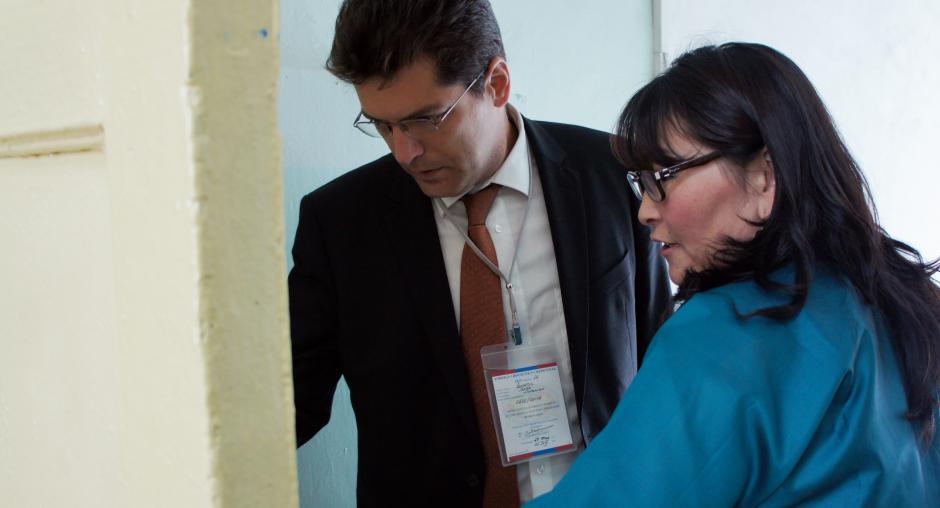Mongolia’s election competitive and effectively administered, but restrictive and inconsistent legal framework could be improved, observers say

ULAANBAATAR, 27 June 2013 – Mongolia’s presidential election was characterized by a competitive campaign conducted in an environment that respected fundamental freedoms, concluded the OSCE election observation mission in a statement released today. At the same time, restrictive legal provisions prevented the media from providing sufficient information to the voters.
The election was held under the recently improved Presidential Election Law, but the law still contains significant gaps and unclear provisions, contributing to uneven interpretation and application of the law, the statement said.
“On election day, voters were able to cast their votes freely, and voting was assessed positively in 99 per cent of cases observed,” said Ambassador Audrey Glover, the Head of the election observation mission of the OSCE Office for Democratic Institutions and Human Rights (OSCE/ODIHR). “However, secrecy of the vote was not always safeguarded.”
“Election commissions at all levels administered the technical aspects of the election effectively, but not always in an open and transparent manner, nor did the General Election Commission always take the necessary steps to ensure the consistent and uniform implementation of the election legislation,” she added.
Three candidates contested the presidential election without hindrance. Among the concerns identified in the statement, however, was that the legal framework provides only parliamentary parties and coalitions with the right to nominate presidential candidates. This and other eligibility requirements are overly restrictive and not in line with OSCE commitments and other international standards, the statement said.
The campaign environment was characterized by respect for fundamental freedoms and the legal framework generally provides for freedom of expression, the statement said. At the same time, it noted that media ownership is not transparent and that interference in the content of news programmes undermines the media’s independence.
For further information contact:
Lauren Baranowska, OSCE/ODIHR, +976 99 315607 or +48 695 916 998, lauren.baranowska@odihr.pl
